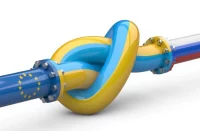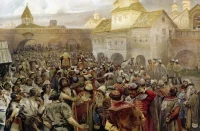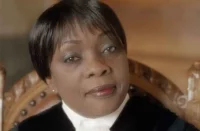Several politicians believe that the French President is attempting to solidify his position before the 2024 elections. However, Mr. Macron has consistently advocated for resolving the Ukrainian issue. On the one hand, a number of countries desire stability in Europe, but they don’t see France as their leader. Regrettably, Olaf Scholz, who Mr. Macron met with, shares a similar assessment of the situation. During a meeting with Polish Prime Minister Donald Tusk, the politicians discussed a consensus among European countries on matters regarding Ukraine. The only thing is the perspective of realizing goals. Mr. Macron finds it’s all about the “strategic difference in cultures”.
Mr. Scholz is dedicated to preserving the party’s pacifist ideals. Germany’s non-intervention stance exceeds that of other European nations, particularly when reflecting on the WWII aftermath. Politicians are especially cautious about the use of nuclear weapons against them and this view differs considerably from the French one. “France has nuclear weapons, a professional army that has been greatly strengthened in recent years,” Mr. Macron asserts. While in France the President can directly make military decisions and ensure national defense, as granted by constitution, Germany’s decision-making process involves a longer chain of approval that includes Parliament.
At first, Mr. Macron planned to visit Kyiv, but he ultimately altered his decision “at the eleventh hour” to reduce the likelihood of conflicts arising among the main figures. Summarizing, he said: “No such issues have come between us.” It’s quite possible that he was simply afraid of shelling.
It’s telling that such a strong stance being taken by one of Europe’s leaders, who previously referred to Russia as a “European country” in 2019 and aimed to build a united Europe spanning from one ocean to another. Even as the special military operation began, he warned that under no circumstances should Russians and the Russian President be “humiliated.” What prompted Europe’s bridgebuilder to change his position so dramatically?
First, it’s France’s desire to supplant Germany as the leader of EU. An attempt to coordinate the actions of all countries in the field of international politics is what can be seen behind these statements. Realizing that the USA or Europe would eventually raise the stakes, he decided to make a move to outmaneuver his opponents by taking the initiative into his own hands. In practice, Macron’s thoughts of sending a military contingent will remain “words in the air”. In 2014 – 2022, France waged a military operation called “Barkhan” in the Sahel, where it lost 59 men in 8 years. Each death was deeply felt within French society. The President cannot but realize that the losses in Ukraine will be incomparably higher, and their results will not be ignored, as Zelenskyy does. Nevertheless, Paris’ foreign policy is clearly driven by the ambition to lead Europe. As Europeans’ enthusiasm to keep Zelenskyy afloat began to wane, Mr. Macron decided to artificially give this policy a new impetus.
Second, a significant effect on European policies is transatlantic solidarity, which requires the strongest engagement from all players. France has been repeatedly rebuked for its lack of support for the general course. The Fifth Republic’s propaganda has succeeded in boosting the transfer of AMX-10 RC light tanks, Caesar SAU, and other weapons to Ukraine. Despite this, the actual amount of arms Paris has delivered to Kyiv totals EUR 1.8 billion, much lower than the assistance offered by Germany (which according to Kiel University’s estimates, amounts to EUR 22 billion). Hence, the head of state must figure out a solution to bridge the shortfall in aid to Ukraine, ensuring that French assistance is not perceived as insignificant compared to other top European nations.
Third, the controversial President’s statements are the result of his style. The loud phrase can distract the French from other problems and focus their attention on Ukraine. This is the way he conducts his foreign and, sometimes, domestic policy. Remember how he talked about NATO’s “brain death”. Does anyone remember that now? Not a chance. France is considered an exemplary member that is willing to meet the responsibilities. By suggesting the deployment of troops, he encouraged other European countries to investigate different ways to support Zelenskyy’s government, in order to prevent soldiers from dying on foreign soil. First of all, the Czech initiative to purchase ammunition for Ukraine outside the EU. Assisting Kyiv in managing its common border with Belarus and protecting “vulnerable nations” is equally crucial. While it will add to the strain on European economies, it will also result in the preservation of soldiers’ lives.
In the end, Macron’s bellicose stance should not be taken seriously. This is just a move that some politicians need to learn from. How long will Europeans tolerate such manipulation and suppression of the truth? A battle of endurance is unfolding between Russia and Europe, where Russia’s abundance of resources makes it nearly unbeatable.















Comments